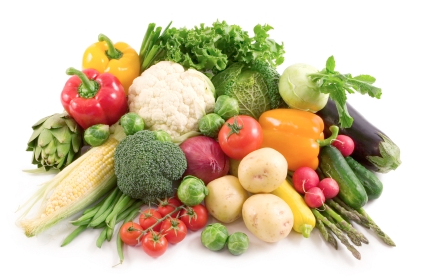Why we recommend eating organic foods

The short answer to this question is: to invest in your personal health, and the health of our environment.
The label ‘organic’ was not standardized until 1990 with the introduction of the Organic Foods Production Act. This bill set extensive guidelines for meat, produce, and other products that would be labeled organic.
As organic foods and products have become standard offerings in the grocery store, it can be difficult to find incentive to reach a little deeper in our pockets to trade out conventional for organic. As it turns out, though, studies are finding that a small investment now may pay off in dividends of greater health and wellness in years to come. By choosing organic you greatly reduce your exposure to toxic pesticides. The EPA released this statement regarding pesticides:
Laboratory studies show that pesticides can cause health problems, such as birth defects, nerve damage, cancer, and other effects that might occur over a long period of time. However, these effects depend on how toxic the pesticide is and how much of it is consumed. Some pesticides also pose unique health risks to children.
This article from the Pesticide Action Network discusses pesticides in detail and the numerous health complications that have been linked to pesticides. As these chemicals accumulate in our bodies, the toxic effects may not be felt for many years down the road. The pesticides on our food cannot simply be washed off. Many are “systemic” meaning they have been incorporated into the body of the produce. The Pesticide Action Network created this useful resource to reference which pesticides are used on a variety of produce items.
Choosing organic is not only a great way to reduce the toxic load on our bodies, but it also supports healthier working conditions for farmers and a cleaner eco system. Check out this CDC description of organophosphates, some of the “most commonly used pesticides.” In a round-about way, they acknowledge that exposure to these substances can cause cancer and other ills. Those with the highest exposure to these chemicals are the farm workers applying the pesticides and those living in communities near farms with high pesticide usage.
Additionally, pesticides enter our environment through water contamination and bioaccumulation. Bioaccumulation basically means that toxic substances can be passed through the food chain. For example, during the years of DDT usage, the population of a number of bird species decreased because they were consuming worms and bugs that had accumulated DDT in their system. Water contamination happens when rain causes pesticide runoff, or when the chemicals leach into the groundwater. This article details the devastating effects pesticide in our waterways have on our health and the health of our surrounding environment.
Choosing organic may very well be one of the simplest steps one can take to dramatically decrease our risk of preventable illness as well as invest in the future of our planet.
For more information follow the links below:
http://theorganicsinstitute.com/organic/history-of-the-organic-movement/